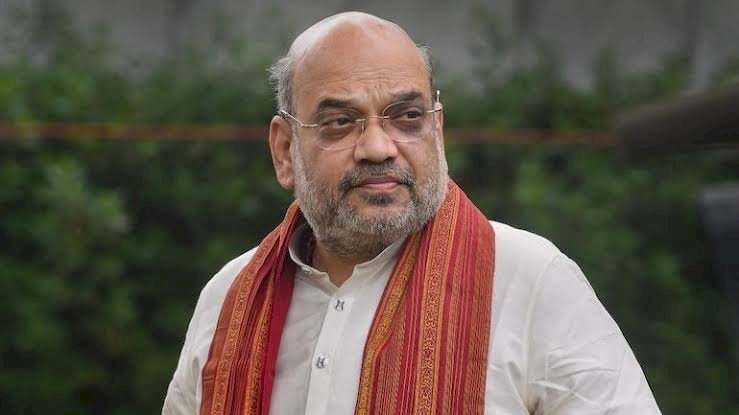New Cooperative horizon
For Printing Download Epaper from files section from bottom of this page

Union home minister Amit Shaha has taken the charge of newly created co-operative ministry which has left Congress and NCP in Maharashtra trembling. Sharad Pawar has reacted saying co-operative department does not come under centre subjects. Shaha and Modi must be knowing this very well. If the duo has decided to strengthen the movement, what is wrong with it? Why it should be greeted with a negative reaction? In Maharashtra, co-operative movement was established by Vitthal Vikhe Patil, Dhananjay Gadgil, Yashwant Rao Chavan and many more. It took roots and changed rural Maharashtra. It brought enrichment in rural areas and people who never seen a note of five rupees used to deal in lakhs very easily. This was the strength of co-operative movement. In rural Maharashtra, all the luxurious items like TV sets, fridges, foreign-made motor cars and such things became a common scene. Unfortunately, the evil elements enter the movement as all fields and they devastated the good picture. The leaders from the then ruling parties like Congress and now NCP done all types of malpractices and farmers once living in richness pushed to poverty. With the closure of many sugar industries and co-operative societies, many youths lost jobs. Today the root cause of the frightening level of unemployment in rural areas is the corruption in co-operative societies. co-operative banks also were made bankrupt by the leaders who distributed loans worth crores of rupees to directors who again were leaders. In this, bank employees became jobless. All these evils were done and nobody was to control them because the brain behind these malpractices were in the government. Now, if Amit Shaha is intended to clean the field, everybody should welcome it. As businesses, cooperatives present an appealing alternative to slothful public sector undertakings (PSUs) and profit-maximizing private enterprises. On paper, they are either producer or consumer-owned. Producer cooperatives seek to obtain the highest possible value for the goods and services supplied by farmers, fisherfolk, artisans or labourers. Consumer cooperatives, likewise, provide inputs (fertilizer, seed, credit, fuel, etc), groceries, housing, health and other services at the most economic rates to their members. In reality, though, cooperatives in India have rarely been member-governed organizations. In a majority of cases, they have serviced the interests of politicians and governments more than their members. This is irony and nobody tried to stop it. Some had idealistic and zealous founders, but have over time degenerated into quasi-private family-owned businesses. In other words, rather than being a genuine producer- and user-based organisations, cooperatives have combined the worst of state and private enterprise. Not for nothing, the Narendra Modi government’s latest decision to create a separate Ministry of Cooperation — headed by Home Minister Amit Shah, no less — is being viewed with cynicism by many. They see it as yet another instance of an overbearing Centre attempting to gain control over grassroots institutions, especially in Opposition-ruled states, and undermining the principles of federalism. Truth be told, cooperatives — whether at the state or central level — have always been vulnerable to political and bureaucratic interference. They have seldom been allowed to operate as commercial enterprises controlled and accountable to their ostensible owners. Most of them are PSUs except in name, discharging the goals set by the Centre (NAFED) or selling members’ produce at prices fixed by state governments (dairy federations). There are exceptions like Amul and IFFCO, whose success has been owed mainly to their being run by professional CEOs and managers, as against IAS officers. Bringing cooperative banks under the Reserve Bank of India’s supervision was a welcome measure. Cooperatives can do without multiple regulators and thrive as truly member-owned businesses. If Amit Shaha succeeds in liberalizing co-operative institutions from political interference and corruption, the lakhs of farmers will be thankful to him forever.

 Active Times
Active Times 

















